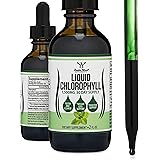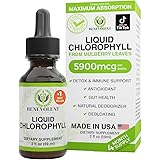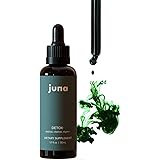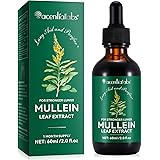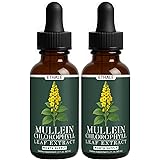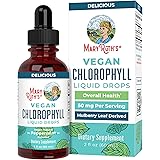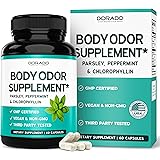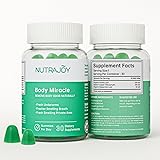Chronic stress has become an undeniable reality for many, impacting overall well-being. Reports indicate that over 75% of adults regularly experience physical or psychological symptoms of stress. This pervasive issue often stems from elevated cortisol, the body’s primary stress hormone. As the accompanying video expertly discusses, managing cortisol is crucial for optimal health. Fortunately, diet offers a powerful leverage point. Understanding the intricate dance between our food choices and stress hormone regulation can unlock profound wellness benefits. This article delves deeper into how specific nutrients and dietary strategies can help modulate your body’s stress response.
Deconstructing the Stress Response: Cortisol and the ANS
The adrenal glands are central to our stress response. They release cortisol from their outer cortex. Adrenaline, a potent neurotransmitter, originates from the inner medulla. These two compounds work in concert. Their primary function is to equip the body to adapt to perceived threats. This system is ancient and highly effective.
Historically, stress meant physical dangers, like facing a predator. Today, mental and emotional stressors predominantly activate this same system. The body, crucially, does not distinguish between a looming deadline and a saber-toothed tiger. Both trigger the same physiological cascade. This chronic activation, without the physical release of “fight or flight,” leads to sustained cortisol elevation.
The Autonomic Nervous System (ANS) governs these automatic bodily functions. It operates like a car’s engine, with two main components. The sympathetic system is the “gas pedal,” initiating the “fight or flight” response. The parasympathetic system acts as the “brake,” promoting “rest and digest.” Cortisol and adrenaline directly engage the sympathetic nervous system. Achieving balance between these two systems is vital for stress resilience. An overactive sympathetic state keeps cortisol levels unnecessarily high.
The Detrimental Impact of Sugar and Starches
High blood sugar levels are a significant disruptor of the ANS. This condition is termed diabetic dysautonomia in severe cases. Sustained hyperglycemia damages autonomic nerves. This damage can manifest in various ways. Peripheral nerves in the hands and feet are often affected. The vagus nerve, crucial for digestion and calm, also suffers. Conditions like gastroparesis highlight this nerve dysfunction. It underscores the profound link between metabolic health and stress regulation.
Sugar and refined starches are notorious for elevating blood glucose rapidly. This metabolic surge keeps the sympathetic nervous system engaged. It essentially puts the body in a constant state of alert. Consequently, cortisol and adrenaline remain elevated. This sustained sympathetic dominance prevents true physiological recovery. It traps the body in a detrimental stress mode. Reducing these dietary culprits is a foundational step in stress hormone management.
Dietary Strategies for Cortisol Management
Shifting away from a high-sugar, high-starch diet dramatically supports ANS balance. A ketogenic dietary approach, characterized by very low carbohydrate intake, offers a powerful alternative. By minimizing glucose spikes, this diet promotes stable blood sugar. This stability directly calms the sympathetic nervous system. It allows the parasympathetic system to exert more influence.
Intermittent fasting further augments these benefits. Fasting encourages a shift towards parasympathetic activity. Many individuals report a profound sense of calm. This tranquility arises from the enhanced “rest and digest” state. Combining a ketogenic diet with strategic fasting creates a potent synergy. This lifestyle shift can effectively rebalance the ANS. It facilitates significant reductions in circulating cortisol.
Key Nutrients for Adrenal and Nervous System Support
Beyond carbohydrate restriction, specific micronutrients are indispensable for optimizing adrenal function and nervous system health. Deficiencies in these vital compounds can exacerbate stress and hinder recovery.
Vitamin B12: The Neural Guardian
Vitamin B12 is critical for maintaining a healthy nervous system. It plays a pivotal role in myelin sheath formation. Myelin protects nerve fibers, ensuring efficient signal transmission. A B12 deficiency can directly impair autonomic nerve function. This impairment can intensify the body’s stress response. Rich sources include animal products like red meat, fish, and organ meats. Prioritizing these foods ensures adequate B12 intake for neural resilience.
Choline, B1, and B5: Acetylcholine’s Architects
Acetylcholine is the primary neurotransmitter of the parasympathetic system. It is responsible for initiating states of rest, digestion, and calmness. Without sufficient acetylcholine, the body struggles to transition out of “fight or flight.” Choline serves as a direct precursor to acetylcholine. Egg yolks are an exceptional source of choline. Organ meats also provide substantial amounts. Furthermore, vitamins B1 (thiamine) and B5 (pantothenic acid) are cofactors. They are essential for acetylcholine synthesis. Nutritional yeast and sunflower seeds are excellent natural sources. Many individuals report feeling calmer shortly after consuming nutritional yeast. This immediate effect highlights its rapid impact on parasympathetic tone.
Potassium and Magnesium: The Physiological Relaxers
These two minerals are often termed “physiological relaxers.” They are crucial for nerve transmission, muscle contraction, and electrolyte balance. Stress and high sugar intake are significant depleters of both potassium and magnesium. This depletion creates a vicious cycle. Lower levels of these minerals reduce the body’s capacity to calm down. Increasing intake supports the parasympathetic system. It directly contributes to lowering cortisol. Deep leafy green vegetables are powerhouse sources. Incorporating large, vibrant salads into your diet ensures ample supply of these calming minerals.
Vitamin D3: The Hormonal Modulator
Vitamin D3 acts more like a hormone than a vitamin. It shares several functional similarities with cortisol. Interestingly, high cortisol levels tend to deplete vitamin D stores. Individuals under chronic stress often exhibit low vitamin D levels. Supplementing or increasing dietary vitamin D can help modulate cortisol. It promotes a more balanced stress response. Sunshine is a primary source of vitamin D. Fatty fish, such as wild-caught salmon, also provide this essential nutrient. Optimizing vitamin D levels can significantly support adrenal health and reduce systemic inflammation.
Probiotics: Nurturing the Gut-Brain Axis
The vagus nerve is a critical component of the parasympathetic system. It forms a direct communication highway between the brain and the digestive system. A healthy gut microbiome positively influences vagal tone. Probiotic-rich foods fortify this vital gut-brain connection. Fermented foods like sauerkraut, kefir, pickles, and kimchi introduce beneficial bacteria. These microbes produce neurotransmitters and short-chain fatty acids. These compounds signal directly to the brain via the vagus nerve. Enhancing gut health through probiotics can improve vagal nerve function. This, in turn, supports the parasympathetic system. Many experience improved sleep and reduced anxiety with probiotic consumption. It reflects the profound influence of gut health on overall stress resilience.
Integrating Dietary Wisdom for Lasting Calm
Managing cortisol is an ongoing process. It requires a holistic approach. Dietary changes, as discussed, are cornerstone elements. By understanding the body’s intricate stress response, we can make informed choices. These choices empower us to regain control. They can shift us from a state of chronic sympathetic overdrive. We move instead towards a balanced, parasympathetic-dominant state. This cultivates lasting calm and supports optimal adrenal health. Embracing these nutritional strategies offers a robust pathway to better stress management.



